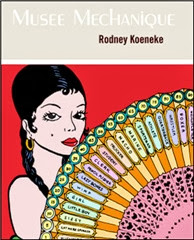
The received wisdom about
Satyajit Ray’s eccentric 1967 detective pic,
Chiriakhana, is that he never intended to make it. He secured the project for the benefit of his long-time assistants; he had no say in selecting the story or in the casting; he didn’t relish working again with box-office superstar
Uttam Kumar, who’d contributed little to the creative process while filming
Nayak the year before. Once shooting started though, the producers insisted on Ray’s involvement, and out of loyalty to his crew he agreed.
But this story doesn’t entirely square with how Ray-like the film turned out to be.
Uttam Kumar plays
Byomkesh Bakshi, a bespectacled, scholarly detective who spends his unemployed days drinking tea with his Watson, Ajit Chakravorty, in a shabby Kolkata office. An armchair philosopher and polymath who can discourse on everything from herpetology to Shakespearean drama—not unlike Ray himself, and the urban Bengali professional classes he so often dissects in his films—Bakshi lives surrounded by the paraphernalia of scientific rationalism: an anatomy skeleton, a pet snake, a deck of cards for practicing sleight-of-hand, a corkboard stuck with random bits of English and Bengali that promise to add up to some kind of sense just beyond the viewer’s reach. In the opening dialog, Chakravorty—an author who, exactly like the genre writer Lalmohan Ganguly in Ray’s 1978
Joi Baba Felunath, hangs out with Bakshi in the hopes of collecting material for a story that presumably culminates in the film we’re watching—complains that if business doesn’t pick up soon, he’ll be reduced to making his fortune writing “romance novels.”
This opening contrast between romance and rationalism, which evokes the familiar divide between Bollywood convention and the more naturalistic “parallel cinema” favored by Ray, sparks a short but significant discussion within the film on the art of narrative. Bakshi, citing Shakespeare as his example, points out that there’s no play without a murder, just as there’s no romance novel without illicit love. Both these essential generic features clash with society’s everyday strictures, where murder and “illicit” passion entail serious reprisals. “Illegal affairs,” he tells Ajit, “may be illegal in society, but it is very necessary in literature.”
Having put the rules of the genre we’re watching into conflict with the laws of society, Ray goes on to tease out the implications of convention, in stories and society alike. The film’s opening shot tracks from a remote documentary capture of Kolkata street life to the four-walled, artfully chosen clutter of Bakshi’s office. Likewise, the plot takes us from Bakshi’s heterogeneous interior world to a groomed, tightly controlled reform colony run for the benefit of social outcasts and criminals. The mystery centers on a retired judge who decides to atone for the innocents he may have mistakenly sent to prison by recruiting the morally suspect to work in his rose business. (Allusions to roses and thorns are an ongoing source of play in the film.) Bakshi’s hired to investigate the disappearance of one of the colony’s members, a woman who once starred in a Bengali film, “The Poison Tree,” featuring a song “sung by the actress herself” called (generically enough) “What Do You Know of Love?” The song was a popular hit, but the woman disappeared soon after, having been accused of murdering one of the film’s producers, who was also her lover.
Bakshi visits the rose colony disguised as a Japanese businessman, and discovers his client’s carefully curated “zoo” of criminal types to be as artificial as the elements of any romantic plot. Far from cultivating his miscreants into model citizens, Bakshi’s client has unknowingly created an artful façade for deceit, violence, and—when our ex-judge is killed while delivering an urgent message to Bakshi over the phone—the generically required murder.
The rest of the film pivots on a deaf-mute witness to the crime, who himself gets murdered, but not before writing down the information Bakshi needs to find the culprit on a slip of paper. The clue in the note involves a pun in Bengali that doesn’t translate to English, and the deaf-mute witness idea, while conceptually interesting for a film, doesn’t add much to the themes Ray’s put into motion. Ray later dismissed the film as
“a whodunit, and whodunits just don’t make good films. I prefer the thriller form where you more or less know the villain from the beginning. The whodunit always has this ritual concluding scene where the detective goes into a rigmarole of how everything happened, and how he found the clues which led him to the criminal. It's a form that doesn’t interest me very much.”
Maybe because of his antipathy to the material, Ray manages to turn
Chiriakhana into a sly meditation on form, generic artifice, and the social realities to which they’re accountable. Bakshi’s detachment from the crime he’s out to solve mirrors Ray’s disinterest in the “whodunit” form whose conventions he dutifully fulfills while at the same time pointing to why it is they fail—the thorns, it turns out, are more compelling than the roses, and reality keeps exceeding the moral and artistic conventions we devise to contain it.





















